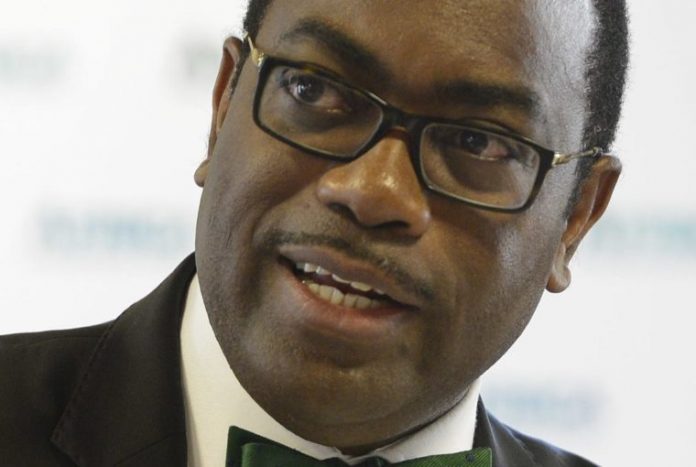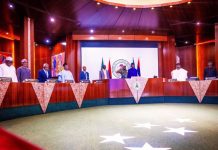The essence in the axiom – Failure is like an orphan while success has many cousins – can be buttressed with the story of Dr. Akinwumi Adesina, Nigeria’s past Minister of Agriculture and Rural Development. On the eve of his departure from Aso Rock, President Goodluck Jonathan, while handing over the mantle of national leadership to Muhammadu Buhari in May 2015, enthused that for him, it was a happy omen to tell the nation that Dr. Adesina had just won the contest to head the African Development Bank, AfDB, with its headquarters in Abidjan, Cote D’Ivoire.
Whether home or abroad, the gold fish has no hiding place. Last June, while his hands were on the plough, the AfDB President, Akinwumi Adesina was named the 2017 World Food Prize Laureate. The prize is to agriculture what Nobel Prize is to peace, science and literature. Last week, a statement from the AfDB said the World Food Prize board announced Dr. Adesina as the 2017 Laureate for his work in improving the availability of seed, fertilizer and financing for African farmers. He is also being recognised for laying the foundation for youths in Africa to engage in agriculture as a profitable business.
The World Food Prize, founded by Nobel Laureate, Norman Borlaug, is the foremost international honour recognising the achievements of individuals, who have advanced human development by improving the quality, quantity or availability of food in the world. As Minister of Agriculture and Rural Development in Nigeria, Dr. Adesina introduced the E-Wallet system, which brought transparency to fertilizer distribution system – a process previously hampered by the huge level of corruption in the system for 40 years. In 2013, the influential Forbes Magazine voted Dr. Adesina as its Man of the Year.
Dr. Adesina’s policies expanded Nigeria’s food production by 21 million metric tons, and the country attracted $5.6billion in private-sector investments, earning him tremendous respect as the ‘Farmers’ Minister’. Under his current leadership, the AfDB is accelerating agricultural development through its Feed Africa Strategy with planned investment of $24billion over the next 10 years.
The goals of AfDB’s Feed Africa strategy are to help eliminate extreme poverty in Africa by 2025; end hunger and malnutrition in Africa by 2025; make Africa a net food exporter; and move Africa to the top of export-orientated global value chains where it has comparative advantage.
Over 1,200 people from more than 65 countries are scheduled to address cutting-edge issues related to global food security and nutrition at the 2017 Borlaug Dialogue International Symposium, ending today in Iowa. The AfDB President stressed, “As someone who grew out of poverty, I know that poverty is not pretty. My life mission is to lift up millions of people out of poverty, especially farmers in rural areas. We must give hope and turn agriculture into a business”.
Through the Borlaug Dialogue, the World Food Prize Foundation helps build alliances in the struggle against world hunger and malnutrition. At the lecture to mark the World Food Day at Iowa State University, Des Moines, Iowa, United States, last Tuesday, Dr. Adesina called for tax on unused or under-utilised land to encourage commercial agriculture and fast-track the unlocking of Africa’s potential.
In his lecture entitled, “Betting on Africa to Feed the World”, he said more than ever before, the world must help Africa to rapidly modernise its agriculture. His words: “Africa sits on 65 per cent of the uncultivated arable land in the world. So, what Africa does with agriculture will determine the future of food in the world. African farmers need more than a helping hand. They need a policy lift.”
Dr. Adesina stressed that addressing global food security was of great concern to the continent, arguing that about 300 million people were malnourished. The AfDB president paid tribute to Dr. Norman Borlaug, recalling how Africa was the last frontier for the late scholar, who was awarded the Nobel Peace Prize in 1970 for his effort towards feeding a hungry world. According to Adesina, despite the successes recorded globally to ensure food security, the world still has 700 million people languishing in extreme poverty. This includes 800 million with chronic hunger, two billion with micronutrient deficiency and 150 million children under-five years suffering from stunting.
He described the challenge of feeding the world as immense, with the need for rapid increases in global food, feed and biofuel production to cater for a global population of nine billion people by 2050. He decried a situation where Africa spends $35 billion yearly on food imports.
According to Dr. Adesina, if the trend continues, the continent would have spent $110billion by 2030 on importation alone. He, however, noted that Africa’s food security depends on attracting young people to agriculture and agribusiness. He maintained that the sector could potentially create wealth and employment for the youths, thereby stemming rural-urban migration.
Dr. Adesina considered investment in agriculture as key to making the youths prosperous with attendant pressure on infrastructure in the host cities. The AfDB boss said: “We must get youths into agriculture and see it as a profitable business venture, not as a sign of lacking in ambition.”
This year’s theme is “Change the future of migration: Invest in food security and rural development.”Against this background, Dr. Adesina said the AfDB’s ENABLE Youth programme, geared at grooming a crop of young agriculturists, was on course.


















